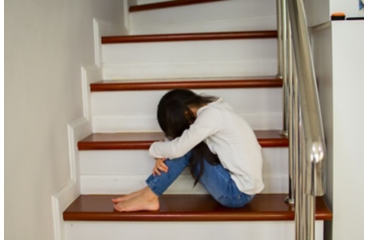Our Health Library information does not replace the advice of a doctor. Please be advised that this information is made available to assist our patients to learn more about their health. Our providers may not see and/or treat all topics found herein.
Topic Contents
Mood Disorders in Children
Overview

Mood disorders are a health problem. They can cause big changes in how your child feels and behaves. All kids have strong emotions or tantrums sometimes. But mood disorders involve intense, distressing emotions that don't go away. Those emotions affect your child's everyday life.
What are the different types of mood disorders in children?
The different types of mood disorders in children include:
- Major depressive disorder. Your child feels grouchy, down, or sad, or has a loss of interest in most activities, lasting for at least 2 weeks.
- Persistent depressive disorder. Your child has a depressed or grouchy mood more days than not, lasting for at least a year.
- Disruptive mood dysregulation disorder. Your child:
- Is very grouchy in many settings. For instance, this may happen at school, at home, or with friends.
- Has frequent and severe outbursts. These may be verbal or physical.
- Has a grouchy or angry mood for most of the day, nearly every day.
- Bipolar disorder. Your child has extreme mood changes. Their moods cycle between very high energy and extreme lows of depression. Not all experts agree on what should be the minimum age for diagnosing bipolar disorder.
What are the symptoms?
Children may have different symptoms. Symptoms can also vary depending on the type of mood disorder and the age of your child.
Physical symptoms include:
- Changes in appetite or weight.
- Changes in sleep.
- Physical complaints (like a headache or stomachache) with no obvious cause.
- Bursts of energy or excitement.
- Talking too fast or too loud, or jumping from topic to topic.
- Feeling tired or having low energy.
- Moving and talking more slowly than usual.
- Risky behavior.
Emotional symptoms include:
- A depressed or grouchy mood most of the time. Younger children may describe this as feeling "grumpy" or "sad."
- Not enjoying things they used to enjoy.
- Avoiding friends and social events.
- Doing poorly in school or refusing to go to school.
- Not getting along with family members.
- Frequent temper outbursts.
- Feelings of worthlessness or guilt.
- Thoughts of suicide.
Where to get help 24 hours a day, 7 days a week
If your child talks about suicide, self-harm, a mental health crisis, a substance use crisis, or any other kind of emotional distress, get help right away. You can:
- Call the Suicide and Crisis Lifeline at 988.
- Call 1-800-273-TALK (1-800-273-8255).
- Text HOME to 741741 to access the Crisis Text Line.
Consider saving these numbers in your phone.
Go to 988lifeline.org for more information or to chat online.
How are mood disorders treated?
Mood disorders in children are usually treated with medicines, counseling, or both. Treatment may vary based on your child's symptoms and age. Don't be discouraged if you need to try more than one treatment. Sometimes it can take some time to find the type of treatment that works best for your child.
Related Information
Credits
Current as of: July 31, 2024
Author: Ignite Healthwise, LLC Staff
Clinical Review Board
All Healthwise education is reviewed by a team that includes physicians, nurses, advanced practitioners, registered dieticians, and other healthcare professionals.
Current as of: July 31, 2024
Author: Ignite Healthwise, LLC Staff
Clinical Review Board
All Healthwise education is reviewed by a team that includes physicians, nurses, advanced practitioners, registered dieticians, and other healthcare professionals.
This information does not replace the advice of a doctor. Ignite Healthwise, LLC disclaims any warranty or liability for your use of this information. Your use of this information means that you agree to the Terms of Use and Privacy Policy. Learn how we develop our content.
To learn more about Ignite Healthwise, LLC, visit webmdignite.com.
© 2024 Ignite Healthwise, LLC.



